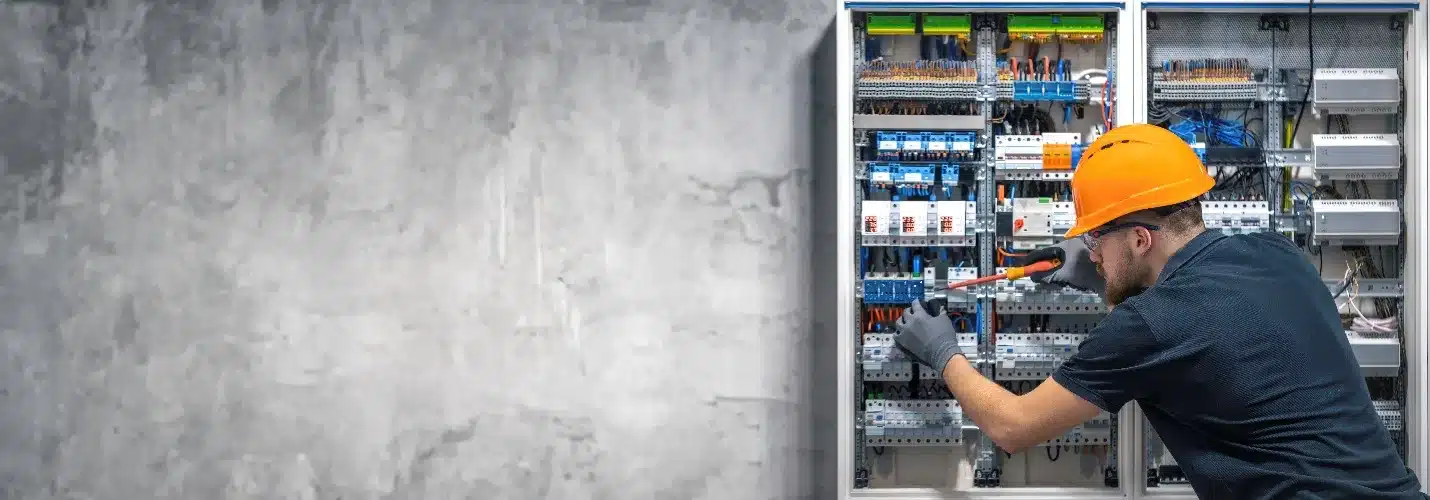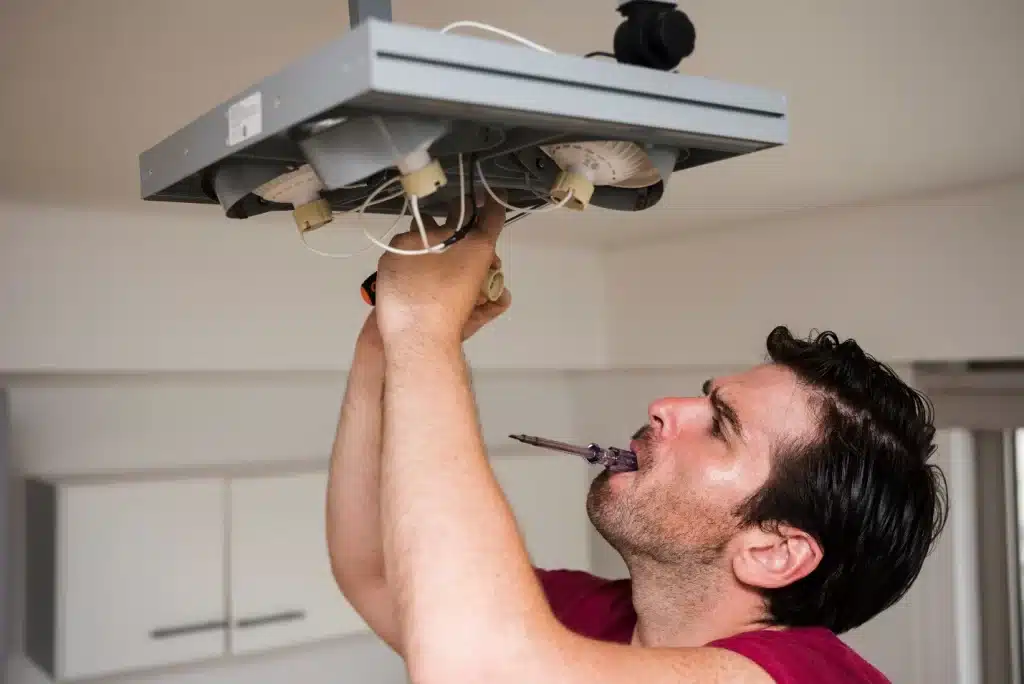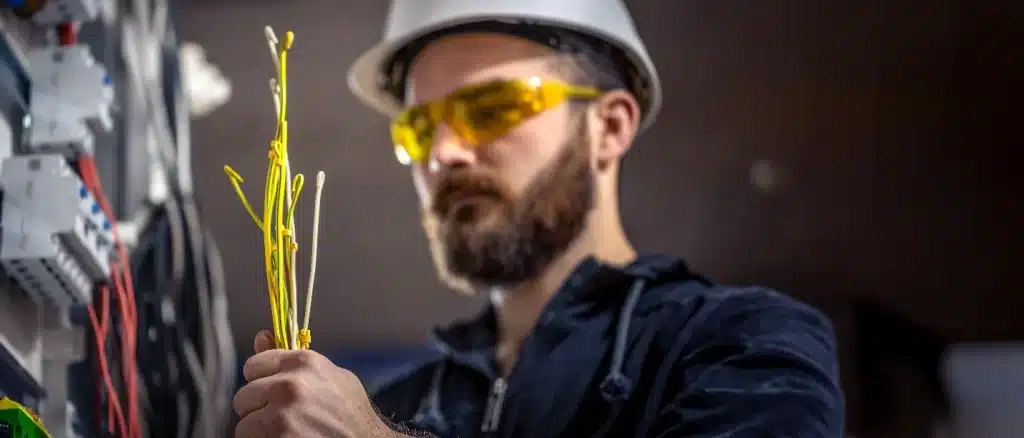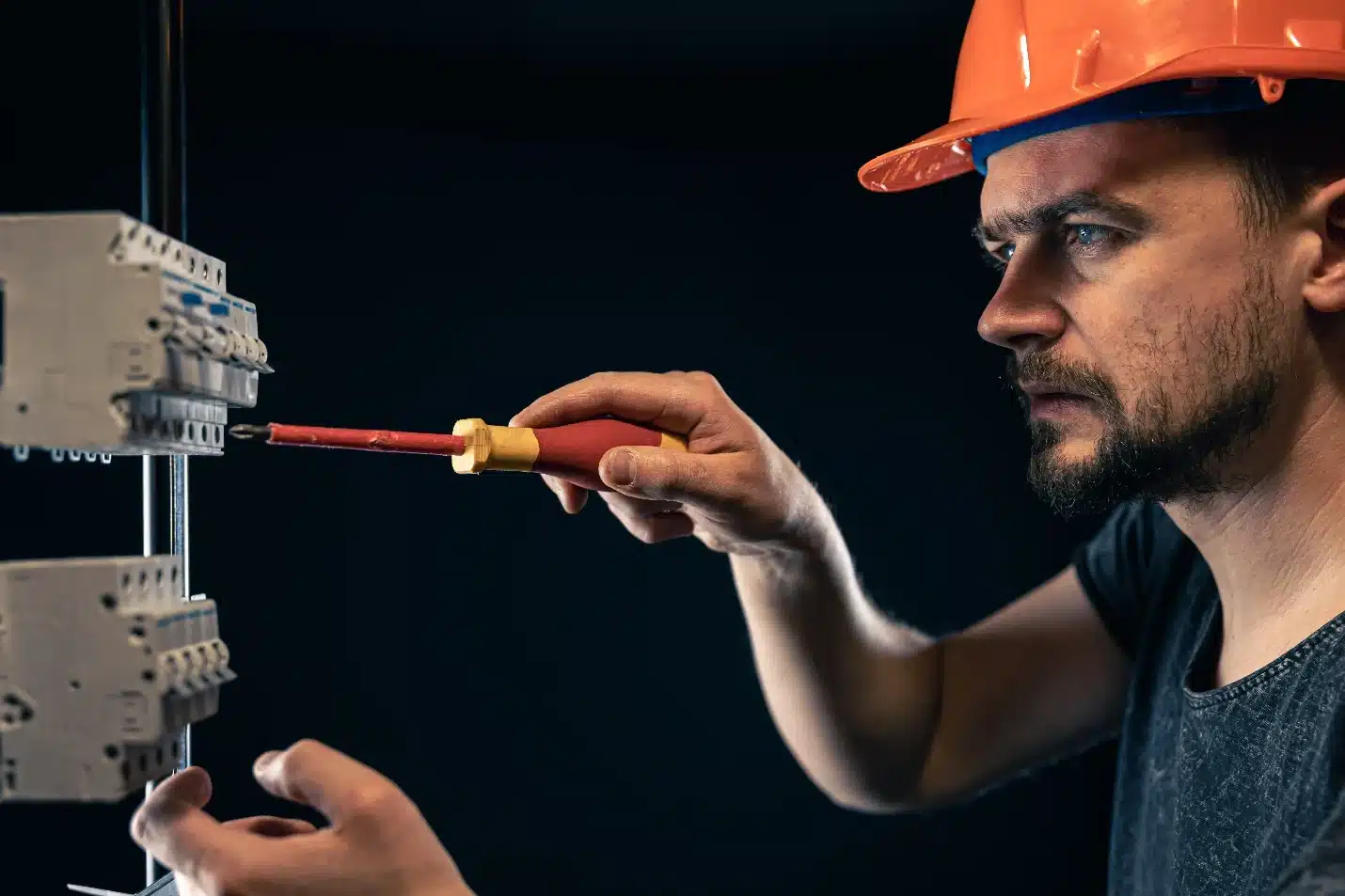Summary
Common electrical maintenance mistakes that can be too costly include ignoring regular inspections, overloading your panels, DIY repairs, neglecting wiring issues, and failing to upgrade outdated systems.
Table of Contents
Introduction
Electricity powers almost every aspect of modern life. Yet it is easy to overlook the importance of maintenance to keep your electrical system working smoothly. At Tercero Inc., we have seen firsthand the costly consequences of common electrical service mistakes.
From neglecting regular inspections to failing to upgrade your aging systems, electrical mistakes can add to expensive repairs or create serious hazards. In this article, our industrial electrical contractors examine common mistakes, explain how to avoid them, and provide tips for choosing good electrical panel repair contractors.
Common Electrical Maintenance Mistakes That Lead to Costly Repairs
Mistakes in electrical servicing can lead to costly repairs, safety hazards, and even legal issues.
A. Ignoring Regular Electrical Inspections
One of the biggest mistakes in electrical system upkeep is failing to schedule regular inspections. These inspections can help resolve problems before they escalate, preventing operational downtime and costly repairs.
In a commercial building, regular inspection helps ensure compliance and keeps occupants safe from common hazards such as electrocution and fire. Minor issues caused by daily wear and tear, especially related to wiring, can easily damage equipment and endanger the lives of the people in your building.
B. Overloading Electrical Panels

Overloading your electrical panel is one of the most common electrical mistakes that can have costly consequences. An overloaded panel can result in frequent tripping breakers, blown fuses, electric shock, fires, and damage to your equipment.
You can avoid overloading your electrical panel by not plugging too many appliances into your outlets, using extension cords, and ensuring that outlets have the correct voltage for your appliance.
As a rule of thumb, you should also not plug in more than two large appliances on a single outlet at a time to avoid overloading and potentially causing a fire.
C. DIY Electrical Repairs Instead of Hiring Professionals
While DIY electrical repairs may seem affordable, attempting them on electrical projects can do more harm than good. A little mistake in electrical work can result in significant damage, costly repairs, or safety hazards. Hiring industrial electrical contractors guarantees the job is done correctly, safely, and in compliance with electrical codes.
Hiring a professional protects you from personal injury or property damage due to faulty installation and repairs.
D. Neglecting Wiring and Cable Issues
Old, damaged, or improperly installed electrical wires are a common hazard in workplaces and commercial buildings. If wires and cables are not connected correctly or if there is damage to the insulation, it can lead to short circuits, sparks, or even fires.
Signs like flickering lights, warm outlets, or a persistent burning smell should never be ignored. You should also ensure the timely replacement of worn cables with appropriate substitutes. When in doubt, ask an experienced electrician to guarantee safe wiring practices.
E. Failing to Upgrade Aging Electrical Systems
Many older buildings still use outdated electrical systems not designed to handle modern power demands. Outdated components such as knob and tube wiring or fuse-based systems are inefficient and unsafe. Failing to upgrade old wiring, panels, or circuits can lead to overheating, inefficiency, and frequent power trips, which can be potentially dangerous.
Investing in a modern electrical system will improve efficiency and productivity while minimizing safety hazards and costly repairs.
How to Prevent Costly Electrical Issues

Preventing expensive electrical issues starts with preventive maintenance and ensuring energy efficiency. Here are some strategies to protect your business from common electrical problems:
1. Regular Inspections
Routine electrical inspections are an essential part of preventive maintenance. These inspections allow industrial electrical contractors to spot potential problems before they affect the operations of your business or cause further damage.
Key components to focus on during electrical inspections include circuit breakers, wiring, and electrical panels. Besides reducing equipment breakdowns and repair costs, regular inspections help maintain energy efficiency, safety standards, and extend equipment lifespan.
2. Scheduled Servicing
Regular servicing scheduling is vital for maintaining the performance and safety of your electrical systems. Proactive maintenance tasks include inspecting electrical panels, tightening electrical connections, checking for damaged cords and wires, and verifying the safety of electrical components.
3. Timely Repairs and Upgrades
Over time, aging components such as electrical panels, fuses, wires, and circuit breakers will lose functionality. Replacing old and outdated electrical components before they cause system damage, electric shock, or fires will help reduce the cost of repairs, ensure compliance with safety standards, and prevent unplanned downtime.
4. Avoid DIY Repairs
A common cause of costly electrical repairs is damage caused by untrained and uncertified hands. Handling your electrical repair yourself is a good way to cause further damage and put your building and its occupants at risk.
For a comprehensive and reliable repair, get a licensed electrician in Los Angeles to inspect and recommend solutions.
5. Update Electrical Systems
If your property is over 30 years old, there’s a good chance your electrical panel has not been upgraded. While it may be tempting to continue using the old system because “it still works”, the dangers of an outdated electrical panel include overheating, inefficiency, electric shock, fires, and damage to your equipment.
Upgrading to a modern electrical panel improves energy efficiency and productivity and reduces the costs of repairs and unplanned downtime.
6. Don’t Ignore Warning Signs
As a facility manager or business owner, you should know the signs of electrical malfunction. This helps ensure that issues are resolved as soon as they become apparent. Common signs of electrical problems include flickering lights, frequently tripped breakers, buzzing sounds, or burning odors.
Promptly addressing these problems will reduce repair costs and prevent equipment damage.
Choosing the Right Electrical Maintenance Professionals

Here’s a guide to help you choose the right commercial electrical repair services for your building.
1. Look for Proper Licensing and Insurance
One of the most important factors to consider when choosing an electrician for your building is their licensing and insurance. Licensed electricians have the training and experience to conduct complex electrical repairs efficiently and effectively. Insurance also protects you and the electrician in case of accidents or damage during the job.
Choosing an unlicensed or uninsured contractor can leave you with subpar work and potential damages.
2. Consider Experience and Specialization
Electrical work varies. When choosing the right industrial electrical contractors, prioritize one with experience doing the required repairs. For example, if you need to install a new electrical panel, you should focus on electrical panel repair contractors.
3. Check Reviews and References
One of the best ways to assess the quality of an electrician is by checking their reviews and asking for references. Online reviews give you an insight into the electrician’s work ethic, the quality of their work, and professionalism. Check on Google, Yelp, Angie’s List, and Better Business Bureau (BBB) for unbiased feedback.
4. Get Multiple Quotes
Getting quotes from at least three electricians is always a good idea. This gives you an idea of what is fair and what isn’t. Be wary of quotes that seem too low, as they might signify inferior materials and subpar work. Similarly, quotes that seem too high may be inflated and not reflect the actual value of your work.
Instead, prioritize quotes that balance transparent pricing and quality work.
5. Communication and Professionalism
Good communication is the key to ensuring your project goes smoothly. The right electrical contractor should be easy to communicate with and professional in their approach. Pay attention to how they interact with you. Do they answer your questions politely and respectfully? Are they responsive to your messages? And how thorough is their knowledge regarding the problems you want addressed?
6. Evaluate Timing and Availability
Ask the electrician about their schedule, timeline, and availability. If you need urgent work done, do they provide emergency services, and what are their protocols? Some commercial electricians are booked weeks in advance, so you must align your needs with their schedule. Choose contractors who are free to take up your job and offer 24/7 availability and emergency service.
Conclusion
Electrical servicing is crucial for maintaining the operations, safety, and efficiency of electrical systems. Without regular maintenance, you run the risk of constant downtime, loss of revenue, and high cost of repairs and replacements. At Tercero Inc., our industrial electrical contractors are trained to spot potential issues long before they occur and resolve them, preventing costly fixes and future breakdowns.
If you need a licensed electrician in Los Angeles, contact us now.
FAQs
A faulty electrical equipment can lead to downtime, damage your equipment, and cause electric shocks and fires.
Common electrical problems include flickering lights, tripped breakers, faulty wiring, loose outlets, aging electrical panels, etc.
The three main types of electrical problems are short circuits, open circuits, and voltage issues.
When using electricity, prioritize safety, use high-quality and certified appliances, unplug unused gadgets, and use extension cords. Do not overload outlets, touch live wires, or run wires under the carpets.
The types of electrical system maintenance include preventive, predictive, corrective, condition-based, and emergency maintenance.
Lightning strikes, faulty appliances, or bad wiring can cause high-voltage disruptions in the flow of electricity, leading to electrical surges in your building.
Electrical upkeep is the process of installing and maintaining electrical systems and equipment. It involves inspecting, resolving, and replacing damaged components.
The 5S system stands for sort, set in order, shine, standardize, and sustain. It helps boost safety and efficiency in the workplace.
Electrical surges, faulty or damaged wiring, overloading of outlets, damaged equipment, and loose connections are the most common electrical problems.
Loose connections are the number one leading cause of electrical failures, contributing to over 30% of outages.

